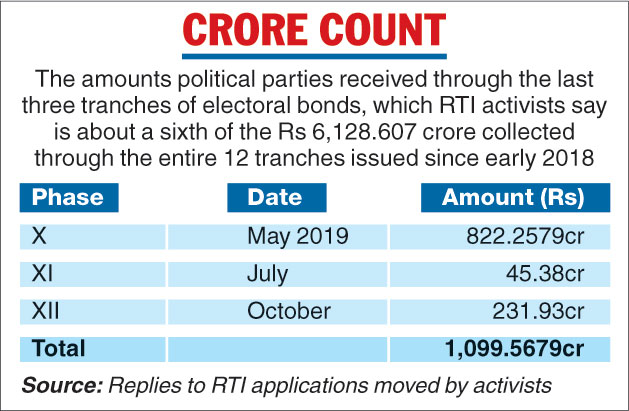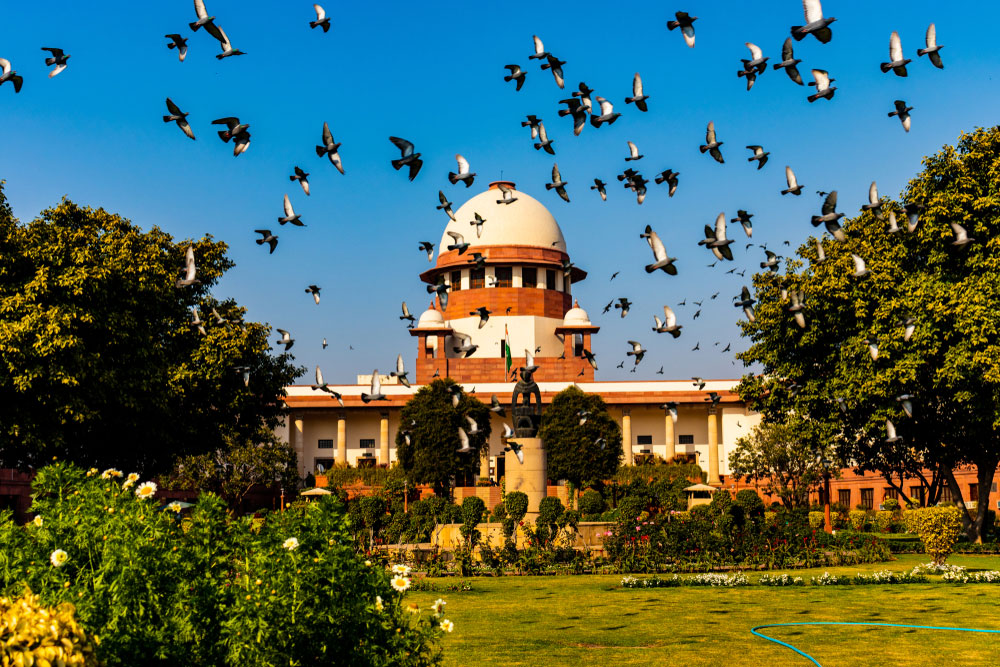The Supreme Court on Wednesday agreed to hear in January an NGO’s plea for a stay on the sale of electoral bonds, which grant anonymity to donors to political parties and were introduced in January 2018 ahead of the 2019 general election.
Advocate Prashant Bhushan, representing the Association for Democratic Reforms (ADR), told the bench that RTI queries had revealed that the Reserve Bank and the Election Commission had raised objections to the scheme but the Centre had ignored them.
According to the petitioner, the scheme has already clocked more than Rs 6,000 crore in anonymous donations to political parties, mostly by corporate houses.
It said the BJP and the Congress had ignored the April 12 apex court order to all political parties to furnish to the Election Commission by May 30 the details of the donations they had received through electoral bonds. The information is to be kept in the poll panel’s custody till further court orders.
However, since that apex court order, the matter has been adjourned twice without a detailed hearing. So, the ADR has moved its fresh application, Bhushan said.

The bench of Chief Justice S.A. Bobde and Justices Bhushan Gavai and Surya Kant then agreed to an early hearing.
“Not more than half of the political parties have submitted their annual audit report for 2018-19. BJP and INC (Congress), the two largest national parties, are yet to submit their audit reports for 2018-19,” the petition says.
It says the total income through electoral bonds as declared by the parties that have submitted their audit reports for the 2018-19 fiscal amounts to Rs 599.07 crore, which it says is only 23.5 per cent of the total electoral bonds bought that financial year.
“In other words, the two national parties together could have cornered more than 70 per cent,” it asserts.
Going by these calculations, the total worth of the electoral bonds bought in 2018-19 would be about Rs 2,550 crore.
“As of November 2019, nearly 76.5 per cent of the electoral bonds purchased during 2018-19 cannot be traced to any specific political party. The delay and non-compliance by political parties defeats the purpose of any such reporting,” the petition says.
Last year, the NGO had moved a petition seeking the revocation of certain amendments to the Finance Act 2017 and Finance Act 2016, which it said had “opened the floodgates to unlimited corporate donations to political parties and anonymous financing by Indian as well as foreign companies”.
The Finance Act of 2017 had introduced the electoral bonds. The amendments removed the existing cap — of 7.5 per cent of companies’ net profit over three years — on campaign donations and “legalised anonymous donations”, the NGO had alleged.
It said that since these bonds were bearer instruments and had to be physically given to a political party, the recipient party got to know the donor’s identity while the public remained in the dark.
The amendments have also removed the requirement for the donor companies to reveal the name of the recipient political party in their profit-and-loss account, the NGO said.











